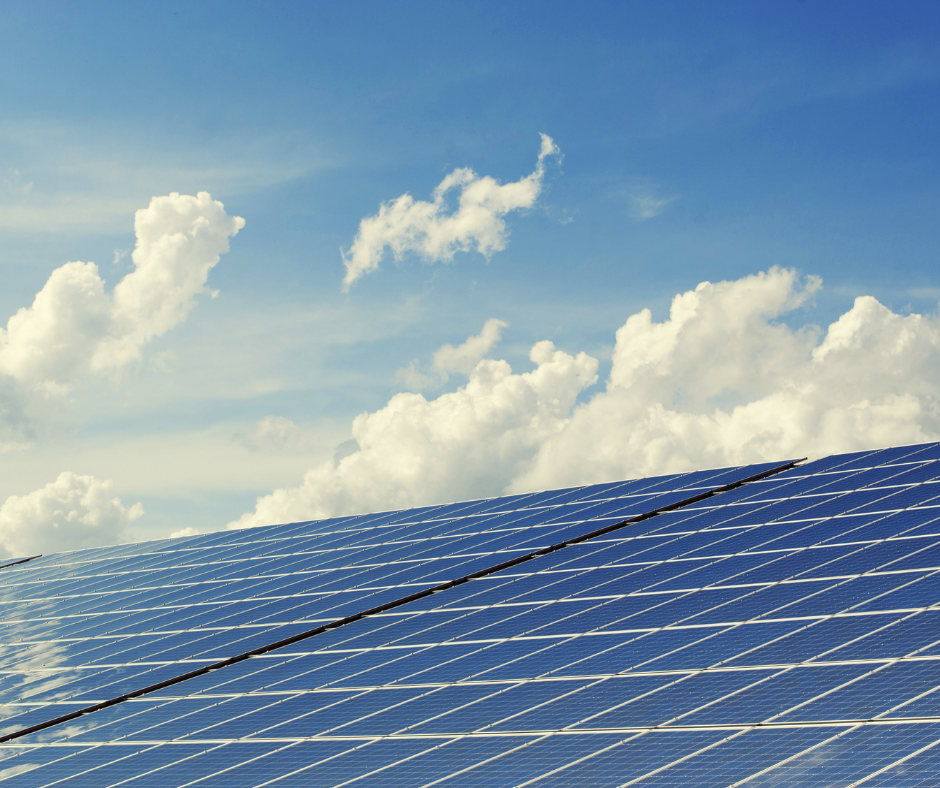Written By: Olivia Forgette
Solar power is defined as energy harnessed from the sun that is then converted into thermal or electrical energy. Solar energy is considered the cleanest and most abundant renewable energy source available. With the sun shining down on us day-after-day, it seems silly to not consider adding residential solar energy to your home as a way of limiting our negative environmental impact, and to ultimately save you money.
We have spoken with Sim Elwood, solar energy expert from Our World Energy to dive into the pros and cons of utilizing solar panels and solar energy to power your residential home.
Solar today
Sure, we have all seen a house or two with solar panels on the roof, but how popular is this innovative method of harnessing energy? According to the Solar Energy Industries Association (SEIA) the United States has more than 97 gigawatts (GW) of solar installed, which delivers enough energy to power nearly 18 million residential homes. The solar energy market in the United States has grown on average 42 percent each year, proving the popularity of these systems is booming!
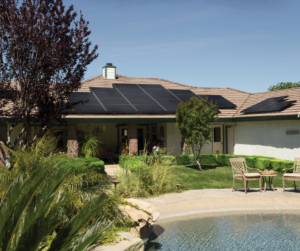
Positives to going solar
Adding a solar panel system to your home will not only save you money, but more importantly, this renewable energy source will help save our environment, according to Elwood.
“Solar is about spending less on power and saving the planet and our breathable air,” Elwood stated. He explained that homeowners who add solar energy to their property are obvious leaders in the fight against greenhouse gases that are produced by traditional power plants. Going solar helps reduce climate change, and also results in fewer air pollutants (like sulfur dioxide and particulate matter) which are known to cause health problems.

Here are some other overarching benefits to adding solar panels to your home!
- Solar works essentially everywhere
- Reduces greenhouse gas emissions (be gone harmful CO2!)
- Increase your home value (on average by about $15,000!)
- Drastically reduce or eliminate your monthly electrical bills
- Earn a financial return on your investment
- Protect yourself against unpredictable and rising energy costs
- Enjoy energy independence
- Protect your environment
- Demonstrate your commitment to sustainable living
Solar Drawbacks
The benefits of solar power far outweigh the drawbacks, but of course there are some negatives to adding solar technology to your home. Some of these drawbacks include that solar energy does not work at night, many find solar panels unattractive when considering home curb appeal, the initial cost can be cumbersome, and it is something you must have professionally installed.
Elwood helped address some of these drawbacks to harvesting renewable solar energy. “During the day [your solar panel system] will be creating energy and using it. At night, your home will run off the power grid,” he said. “When [your system] makes more energy during the day than it needs, you build-up power credits with [your energy provider] which will pay for the night grid usage.”
Elwood stressed that with a professionally designed system for your home, you should have zero net energy bills for the year.
When asked about the negative stigma around the aesthetics of solar panels on your roof, Elwood stated many of his clients enjoy the appearance of the panels and his clients want the panels to be visible from the street. “Studies show that once people start to see solar in their neighborhood they are 20 times more likely to go solar themselves,” Elwood explained. He also mentioned that panels today are designed to be low profile and flat black for a more seamless appearance on your roof.
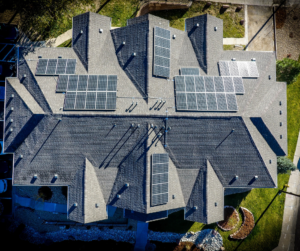
It is also worth noting that adding a solar panel system to your home will not provide you with energy in the event of a power outage. This is to protect line workers from getting injured as they repair the traditional power grid.
As for a discussion on cost and the installation process, keep reading to learn more!
Let’s talk money!
No matter your knowledge on residential solar energy systems, most people do know there is significant cost associated with the panels. Once again, it seems the financial benefits will outweigh that upfront cost over time.
In addition to the panels, your home will also need an inverter installed. Solar panels create direct current power, and an inverter is required to convert that power to alternating current energy (which is what your home requires).
Elwood mentioned that no matter what solar company you decide to work with, the cost is generally remarkably similar across the board. “The purchase price ranges from $15,000-to-$50,000 before incentives are added in,” he said (more on incentives soon!).
There is also commonly an option to lease your solar system, which has a zero-dollar upfront cost. Lease payments start as low as $40 a month, according to Elwood. Leasing a system is a great solution for those seeking renewable home energy but lack the capital for the upfront install. A leased system on average saves customers about 20-to-30 percent on their electrical bills over the course of one year. However, leasing a system makes you ineligible for incentives.
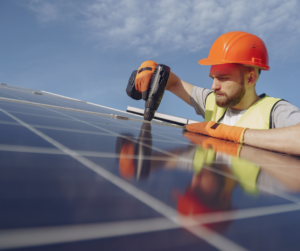
It is also worth noting that your solar panel system includes a 20-year warranty for the panels and the inverter, if you decide to get your panels installed with Our World Energy. Other companies offer similar warranties as well so be sure to ask about the warranty if you decide to get panels installed.
When you are ready to sell your property, homeowners also sell their solar panel system. Elwood explained that homes with solar systems on average sell for 4 percent more, and it is appealing to buyers because they know they will have energy saving as soon as they move in (meaning your home will likely sell quicker! Click here to learn more about how solar panels and your home!).
Incentives to help you save
Installing residential solar energy to your home comes with lots of perks and incentives to offset the initial costs, and to reward homeowners on doing their part for our environment. If a system is purchased or financed with a loan, the homeowner can take a Federal Income Tax Credit (FITC) in the amount of 26 percent of the total system cost.
Each state varies on additional incentives, but here in Illinois the solar incentives include a guarantee that having panels will not cause a rise property taxes, and Illinois offers about 24 percent of the total system cost to homeowners.
If you are local to Illinois and are interested in getting a solar panel system installed in your home, Our World Energy is offering a $750 bonus to any customers who mention this blog at sign up!
Installation & requirements
You now understand the pros and cons of going solar, but what is required of your property to be eligible to add this renewable energy feature?
Elwood explained a standard solar panel system install takes only about six hours, and a new roof is not required to add the panels (although if the roof is in poor condition, it should be replaced before adding the solar panels). When it is time to replace your roof after having panels installed, the solar panel system will need to be removed and re-installed, which will add about $1,200-to-$2,200 in your roof replacement cost depending on the size of the system. Elwood also said that the solar panels are proven to help make your roof last longer as they offer protection to your shingles.
The actual installation requires skilled technicians to secure rails to your roof, attach the panels to the rails, wire the panels together, install the inverter, and connect the solar system to the electrical panel.
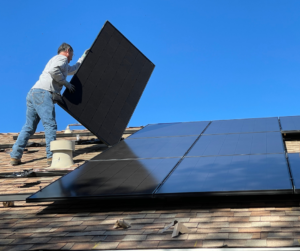
As for home requirements, Our World Energy uses professional Google thermo maps and Google Sunroof to determine annual sun hours on your property’s roof. Google Sunroof offers consumers a way to check on their property’s sun exposure. This service is being updated regularly! If your home address is not yet available, that does not mean your home is ineligible for solar panels. You can also consider looking at a Sun Number, which offers a nice scoring system to determine sun hours.
Be sure to let your solar experts determine if your home is a good candidate for solar energy and get a custom proposal. Elwood explained homes with less than 800 hours of sun do not qualify for the solar program incentives.
It is clear that going solar is not only financially beneficial for the homeowner, but solar solutions also are an excellent way to help protect our environment. We hope you feel more informed on residential solar panel systems and that you consider adding a system to your property!
Remember, if you are local to Illinois, mention this blog when you sign up with Our World Energy to save you some money!
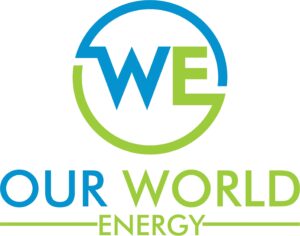
If you or someone you know is looking to buy or sell property and you are local to Illinois, contact Maureen Forgette with CENTURY 21 Roberts & Andrews! 815.354.4236 | mforgette@comcast.net

